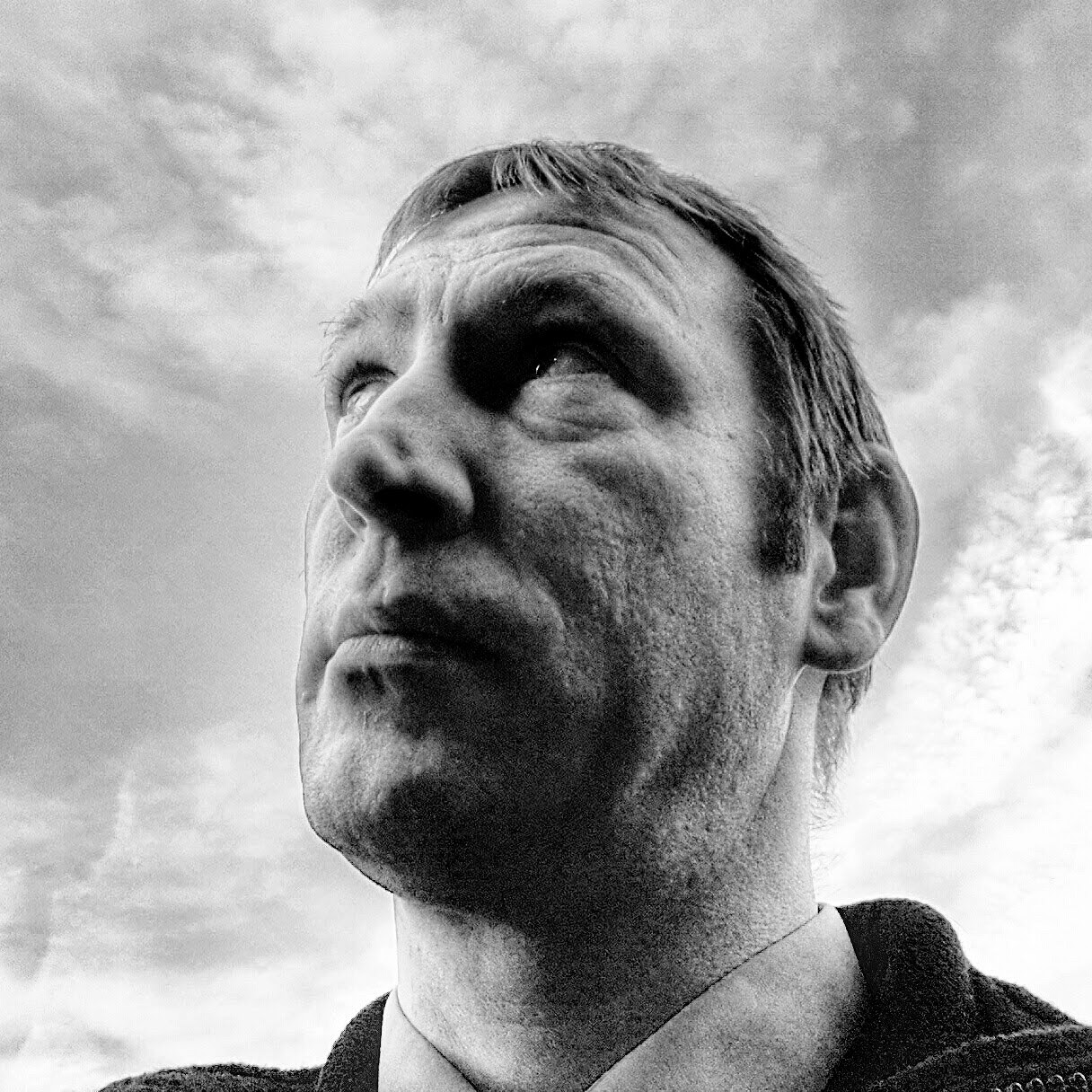2024 years since what?
So what you’re saying is that here in 2024 we’ve got it all figured out?
*Note that: 2024, everything figured out.
“There are more things in Heaven and Earth, Horatio, than are dreamt of in your philosophy.” -Shakespeare
There’s physics. And there’s metaphysics. One does not come to Faith the same way one produces a hypothesis.
I disagree with your last line. A hypothesis is a great analogy for faith. It’s a belief that something is true. Science involves testing the hypothesis, just as faith can be tested.
It’s important to remember that science, by definition, does not prove anything either. There are only supported and unsupported theories.
I don’t really get why people think it’s “science or religion”. Although there are some things to consider:
-
If there are laws in the universe, it may be proof that there’s a law giver of some kind?
-
The beginning of the universe was a recent discovery in science, previous non Christian belief was that the universe had always existed.
-
They are taught about it from childhood and many of us don’t questions stuff we’ve learnt in our childhood.
Education fails to instil scientific temper in them
Lack of proper mental health awareness and support.
Education fails to instil scientific temper in them
Islam used to be the forefront of scientific and mathematical discovery. Believing in god have nothing to do with science or math, it’s superstition, something that cannot be proven or unproven, it’s that irrational thought that make us human.
Islam used to be the forefront of scientific and mathematical discovery.
People of all religions have contributed to scientific growth.
The average religious person and the person discovering scientific/mathematical stuff are generally different tho.
Universal basic education has gained focus in many parts of the world, only relatively recently.I think improved scientific temper would obviously clash with many mainstresm religions.
Presence of some supreme creator may not be proven or disproven, but I think the anti-evolution stuff and similar things in most mainstream religions would face more questions when scientific temper improves.
And I’m not saying that non-religious people are safe from similar stuff too. Just that it is easily spread and maintained when you have a community on it.
Thank you, I think people often overlook how faith and scientific thought can be complimentary. In any case, for questions of religious/spiritual matters, people are basically just running with a hypothesis that works for them. As long as they’re capable of being self-critical and aren’t pushing their beliefs on people who aren’t interested, then it seems fine to me.
They are taught about it from childhood
in one single word >> Indoctrinated
OP this is why people believe in religion, and it’s nearly impossible to get them out of it, you can’t reason someone out of something they weren’t reasoned into in the first place
I find this a seemingly straight-forward point I’ve never gotten a religious person to acknowledge.
99.99999% of people follow the religion they do because their parents did. Not because it’s true. That Christian, that Hindu, that Jew. It’s just because they were told it was true at birth.
If their religion was actually the Truth, why would that be the case…?
I wouldn’t make it that high. A large amount of Christians I know of are converts.
My search for truth in my early 30’s led me to study the world’s religions, having grown up secular and feeling like something was missing. But don’t let this anecdote or others like it get in the way of your logic. You’re doing pretty good for a hairless monkey!
Serious answer:
I can’t speak for anyone else, but I believe in a religion because I’ve found it to be personally beneficial.
I was a pastor for many years and saw much of the best and worst religion had to offer. I haven’t stepped foot inside a church since COVID broke out and don’t know that I ever will again.
My personal beliefs are still a significant part of my life, but I understand why someone would ask the question that spawned this discussion.
Yas queen. COVID’s not over! And even so, God and your soul aren’t important enough to risk contacting the common cold lol
Maybe you haven’t noticed it, but many people are deeply irrational.
Humans are tribalistic, like leaders who are assertive and charismatic, like simple answers, are easily swayed by emotions, fall victim to logical fallacies, and a plethora of other things that all work just fine if you’re operating on a tribal level as we did for most of human history, or rather prehistory. Now that we are in a different phase of technological growth, which has brought with it massive social change, getting rid of all of that superstitious nonsense is very difficult because of aforementioned characteristics. What were beneficial as it tribal species, and arguably even after that, is now a liability. Or at least more of a hindrance to progress.
Because it’s been the way it always has been, because people also hate change, are lazy, and tended to prefer both avoiding cognitive dissidents and minimizing effort to achieve desired results, getting rid of religion is a nightmare hassle. Even when the evidence is right there in front of them, people don’t care. At least not enough of them. They’d rather listen to their authority figure, or do what all their friends are doing. Which if you’re doing what all your friends are doing it just turns into a circle jerk. But since they’re in that circle jerk, they tend to just stay in it, and because the people in it are their friends or family, they defend it because it’s their tribe. We’re kind of hardwired that way.
TLDR, people are dumb monkeys.
Glad to hear this dumb monkey evolved past the tribal stage. You are very smart!
I grew up secular with no religion and my search for truth eventually led me to realize God exists. But after reading your comment I realize I had just been a dumb tribal monkey. I forgot how I must’ve grown up religious and just forgot, and my lazy thinking led me to this convenient falsehood. You’ve really got a deep understanding though- can I buy your book?
The true path to Enlightenment prescribes not to argue with edgy 16 yo kids on the Internet. The New Atheist movement is dead, only edgy kids remain. No need to argue.
The origins of the universe have still not being scientifically explained.
Cargo cult atheism has gotten to the point where people now confidently believe we have evidence of things which we do not.
Cargo cult atheism
Could you expand further on this? It’s not a term I’m familiar with.
Atheists religiously repeating the word “science” long enough that they trick themselves into believing they have explained the origins of the universe. And thus there is no reason for anyone to believe in God.
Certainly science has achieved a lot. However we are no closer to explaining the origins of the universe as before. As the origin has not been explained why is everyone somehow so confident in the falsehood of a creator?
Agnosticism (not being sure about a creator) is totally fine. However Atheists have a weird obsession about being absolutely certain of something they cannot prove an their alternative for. Atheism runs on pure faith that “science will figure it out in the future”. It is a religion in itself.
The “largest minds” of Atheism are all too often based on pure emotion. As we find with Richard Dawkins, the man so smart that he can explain the universe away… and also believes Israel is not committing Genocide in Gaza.
https://raseef22.net/english/article/1095904-et-tu-dawkins-you-refuse-religion-but-support-israel
Your explanation reveals a misunderstanding of the terms, both of science and atheism.
If I may, could I suggest you would be better served by learning about what science is, and also, particularly in this case, just asking atheists what they think and what they mean by the terms they use.
This isn’t a put down, I genuinely think you would be better served by doing so.
I wish you well.
Atheism is certainty of the nonexistence of a creator.
As clearly demonstrated in this thread by people certain of their atheism so much you would be hard pressed to find a religious person so arrogant in their beliefs.
Atheism is certainty of the nonexistence of a creator.
This is wrong. The only thing required to be an atheist is lacking a belief in theistic claims. You don’t need to make the claim that God doesn’t exist, and most atheists don’t.
The only thing we’re certain of (not absolutely, but fairly certain) is that theists haven’t met their burden of proof.
That’s called Agnosticism.
Atheism means you are certain that god does not exist.
You highlighted the A without any understanding of what the prefix a- means. It means not, or without.
I’m not a theist because they haven’t convinced me of any theistic claims. I don’t claim no gods exist. I just don’t know of any gods that exist, therefore I am without theism. A-theism.
No, this is incorrect. Feel free to ask.
You are free to correct a person in a conversation if you feel so inclined.
I don’t believe correcting you would be helpful.
I’ve made my suggestions, which I believe you would be much better served by exploring.
I’ll repeat for your benefit, that if you want to know what someone thinks or what they mean, the best thing you can do is to ask them.
Give it a try, you may be pleasantly surprised or possibly even learn something.*
*Maybe or possibly are not guarantees. I make no promises, but I’ll try.
You have a cult following around celebrities and you are surprised by religion which is older than you?
The difference is we have evidence that celebrities exist
You are dumb so I am going to explain to you so you can understand why this is actually a counterexample that you just gave yourself. Irrationality is what’s the most important problem here. Celebrities can talk about absolute random and insane shit and people will believe them 100% and pretend their words are the words of god. You can prove it’s bullshit 100% and people will still believe it.
Because it can’t truly be proven that there either is or isn’t a god / gods.
You can laugh at people for believing in a god, but at the same time I’m willing to bet you can’t prove that there there isn’t one.
In my mind, atheism makes just as much sense as religion - they are both total assumptions based on incomplete data. Agnosticism is the only sensible way.
You don’t need proof where science doesn’t have any either. The beginning of creation remains a mystery. There is currently no explanation for the motion of the masses that collided, or the source of the matter. If science can hypothesize the events leading to the Big Bang, so can religion.
Science tests hypothesizes and never claims they’re true until there’s mountains of evidence to indicate so.
Religion on the other hand takes a book written by bronze age goat herders and claims it to be true, damn the evidence stacked against it and contradictions within.
You’re making large assumptions. There are more religions than you know. The way one practices also may not be familiar to you. You’re demonstrating intolerance through ignorance. Maybe you should be asking questions in this post about religion, or abstain if you’re not interested in understanding it.
Are you familiar with Baruch Spinoza? His take is fascinating. His higher power did not concern itself with the fates of mankind, but is responsible for the lawful harmony of existence. It also does not discount or displace science in any way.
All religion is untested made up nonsense, no exceptions.
If you make it up without evidence, it can be thrown out without evidence. Athiests make no claims, there’s nothing to throw out.
The real answer to these questions is “we have no idea”, everything else falls under russel’s teapot.
Are you this arrogant in condemning everything you don’t understand?
If you truly believe “you have no idea,” then how can you be sure every religion is wrong without understanding them?
I do understand that it is something people made up without any evidence.
I am this arrogant about anything without evidence, if you present evidence, then I have a reason to believe.
Are you familiar with Baruch Spinoza? His take is fascinating. His higher power did not concern itself with the fates of mankind, but is responsible for the lawful harmony of existence. It also does not discount or displace science in any way.
That’s basic deism but I would disagree and say it does conflict with science. Science is evidence-based, if you claim something exists you must present evidence to support it. I can’t just claim there’s a 5-ton diamond in my backyard and say “trust me bro”. Nobody would believe me, so why should anyone believe in any god without evidence?
A hypothesis requires no evidence. It’s then tested through repeatable controlled experiments. The events leading to the Big Bang have no evidence. If science can hypothesize, why can’t religion?
Have you read string theory? It’s no different than Spinoza’s god.
A hypothesis requires no evidence.
Correct
It’s then tested through repeatable controlled experiments
repeatable controlled experiments are only one aspect of evidence gathering to falsify a hypothesis. Here are a few other methods:
- Observational Astronomy
- Modeling and Simulations
- Indirect Experiments
- Lab Experiments
- Historical Data Analysis
By combining these methods we can still falsify a hypothesis, thus allowing “science to happen”.
The events leading to the Big Bang have no evidence.
Correct! There is no evidence for what lead to the big bang because we can’t gather any data before it started. But we have mountains of evidence that all point to a “big bang” happening - down to a fraction of a second shortly after it started! [1] [2] [3] [4] [5] [6] [7] [8] .
If science can hypothesize, why can’t religion?
Science is willing to discard ideas that lack evidence or aren’t falsifiable. Is religion ready to stop preaching because faith, by definition, is a lack of evidence?
Have you read string theory? It’s no different than Spinoza’s god.
The difference between string theory and Spinoza’s god is the falsifiable part. String Theory, being a scientific theory, makes predictions that should be able to be tested through experiments (although testing will likely be a challenge much like Astrophysics and will instead depend on other scientific methods to gather evidence for/against it). Spinoza’s God is a philosophical concept and not directly falsifiable through scientific methods. Spinoza’s god is the equivalent of me claiming I’m friends with a telepathic unicorn from another dimension, both useless and irrelevant.
[1] Gravitational Waves: https://www.smithsonianmag.com/science-nature/new-cosmic-discovery-could-be-closest-weve-come-beginning-time-180950109/
[2] Redshift: https://socratic.org/questions/how-does-a-redshift-give-evidence-to-the-big-bang-theory
[3] Cosmic Microwave Background Radiation: https://bigthink.com/starts-with-a-bang/cosmic-microwave-background-proves-big-bang/
[4] Abundance of Light Elements: https://map.gsfc.nasa.gov/universe/bb_tests_ele.html
[5] Expansion: https://map.gsfc.nasa.gov/universe/bb_tests_exp.html](https://www.space.com/52-the-expanding-universe-from-the-big-bang-to-today.html
[6] Olbers’ Paradox: https://en.wikipedia.org/wiki/Olbers’s_paradox
[7] Quasars Existence: https://www.astronomy.com/science/60-years-of-quasars/
[8] WMAP Survey: https://en.wikipedia.org/wiki/Wilkinson_Microwave_Anisotropy_Probe](https://www.britannica.com/topic/Wilkinson-Microwave-Anisotropy-Probe
I’m an effort to get you an answer that isn’t dismissive:
-
Youth indoctrination, social conformity, and cultural isolation. If your parents, friends, and most of your community tells you something is true, you are unlikely to challenge it for a variety of reasons including trust (most of what they’ve taught you works for your daily life), tribal identity, etc
-
People naturally fear death, and one coping strategy for the existential fear of death is to convince yourself that the death of your body is not the end of your existence. Science does not provide a pathway to this coping strategy so people will accept or create belief systems that quell that fear, even in the face of contradictory evidence. Relieving the pressure of that fear is a strong motivator.
-
Release of responsibility. When there is no higher power to dictate moral absolutes, we are left feeling responsible for the complex decisions around what is or isn’t the appropriate course of action. And that shit is complicated and often anxiety inducing. Many people find comfort in offloading that work to a third party.
-
Because we are convinced it is true.
The vast majority of people believe whatever the fuck they’re told to believe.
I don’t. My religious beliefs are something I came to myself. There is lots of evidence for a very early church, and the core story around Jesus hasn’t changed much, unlike other legends that evolve through history. The New Testament is pretty reliable as a historical document and many times atheist critics have been wrong, and their arguments are usually very easy to debunk.
How did you come to your faith?
In short, I evaluated the arguments, then realised that the arguments for Christianity were far better than the arguments against. The main argument for atheism is the standard of proof, but anyone can present them with all of the proof they’d like and they can still say “not enough”. There were people around in Jesus’ time who still didn’t believe yet saw the miracles and His resurrection
Here are a few reasons people believe:
-
Meaning and Purpose: Religion can offer a framework for understanding the universe and our place in it. It can provide answers to big questions about life, death, and morality.
-
Community and Belonging: Religious communities can provide social support, a sense of belonging, and shared values. This can be especially important during difficult times.
-
Comfort and Hope: Religion can offer comfort in times of grief or hardship. It can also provide hope for the afterlife or a better future.
-
Tradition and Identity: Religion can be a core part of a person’s cultural heritage or family identity. People may feel a connection to their ancestors or cultural background through their faith.
-
Ethics and Morality: Many religions provide a moral code that guides people’s behavior. This can be helpful in making decisions about right and wrong.
I don’t believe, but I can see why people stick with it and don’t look beyond it. You can get all these things without religion, its just not something that’s taught/passed down in the same way as religion is. Additionally, deconstructing is very difficult. You’re raised to believe something to be real and you’re expected to just drop it and step out of Plato’s cave? You’d look like a madman to any friends/family who aren’t willing and ready to step out and look around.
As a large language model, I cannot endorse any one religion
Come on, this list of reasons was written by an LLM
-
Never ever underestimate the amazing dumbness level of humankind.
deleted by creator












